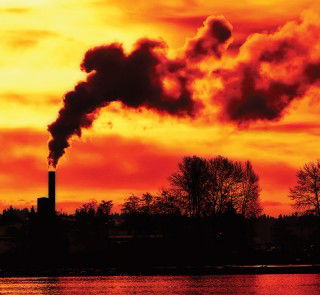The reorganisation of HeidelbergCement is gradually taking shape as the company seeks to prioritise its strongest markets as part of its 'Beyond 2020' strategy. This week, HeidelbergCement made another divestment, selling its 50 per stake in the 0.5Mta Sierra Leone Cement Ltd (Leocem) subsidiary to the Diamond Cement Group (WACEM).
West Africa is a highly active marketplace and the German multinational will maintain a strong presence in the region with facilties in Ghana, Liberia, Togo, Burkina Faso, Benin and Gambia, many of which are supplied with clinker by HC Trading.
Beyond 2020 divestments
The sale of Leocem follows a series of divestments by HeidelbergCement this year. The most recent had been the sale of the integrated cement plant in Malaga along with regional businesses in the Balearic Islands to Votorantim Cimentos in November 2021. Cemex also bought aggregate and ready-mix assets from HeidelbergCement in the Balearic Islands in October 2021.
Earlier in May 2021, HeidelbergCement's Lehigh Hanson subsidiary divested its West US (California, Arizona, Oregon and Nevada) region business activities to Martin Marietta Materials Inc for US$2.3bn. The Greek business is now focussed through the Halyps Cement subsidiary, while the company sold its aggregates business in Mandra and two ready-mix concrete plants in Gerakas and Aspropyrgos to Holcim.
The first step in HeidelbergCement's recent divestment strategy was the disposal of its 51 per cent share in Hilal Cement in Kuwait in January 2021. At that time Dr Dominik von Achten, chairman of the Managing Board said, "The focus of our portfolio management is on simplifying the country portfolio and prioritising the strongest market positions."
HeidelbergCement is not alone in following a divestment strategy. This week Holcim has similarly sold its Zambian cement operations to Huaxin (China) and this follows Holcim's divestments in Brazil to Companhia Siderúrgica Nacional in September. The divestments will give these multinational companies opportunities to re-invest while reducing their carbon footprint.
HeidelbergCement's new investments
However, the Beyond 2020 strategy has not all been about divestments. HeidelbergCement strengthened its presence in Tanzania by agreeing to acquire a 68 per cent share in Tanga Cement in October 2021. In France the company has been modernising its Ciments Calcia plants with an investment of EUR400m for the conversion of the Gargenville (Yvelines) plant into a modern grinding centre and the transformation of the Cruas (Ardéche) white plant into a distribution terminal. The Lehigh Cement subsidary in the USA is also contuning with a US$600m K4 modernisation project of its Mitchell cement plant in Texas.
HeidelbergCement has also broadened its value chain by looking to build a digital ecosystem with Thoma Bravo through a partnership and minorty ownership of Command Alkon. The investment is designed to provide Cloud solutions for customers, building on HeidelbergCement's HConnect digital service.
HeidelbergCement is also in the middle of a EUR1bn share buyback programme, to be completed in September 2023. The programme is in line with the company's net debt reduction plans and business development aspirations. Production costs are similarly under scrutiny and in India the Damoh cement plant is investing in a 5MW solar power plant to reduce its reliance on coal and lower power costs by INR60-65m (US$800-867.1m). The group has also debottlenecked capacity at the Imlai and Jhnasi cement plants in India. Low-carbon cement is also being pursued in Canada with EcoCem®PLUS providing blended Portland limestone cement for customers.
The future
Raising capital for future investment in digitalisation and carbon capture technology to meet the 2030 and 2050 CO2 reduction objectives will be achieved through HeidelbergCement's Beyond 2020 strategy. In the near term, HeidelbergCement has to reduce specific net CO2 emissions below 525kg/t of cementitious material produced by 2025.
Dr Dominik von Achten added that: "We see climate change and digitalisation as the two central challenges of the future for society and for our company."
